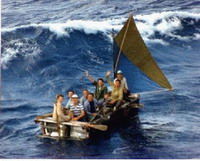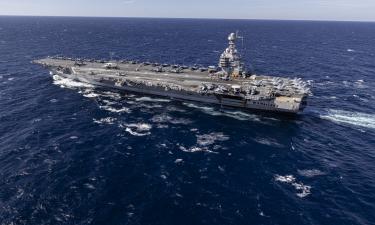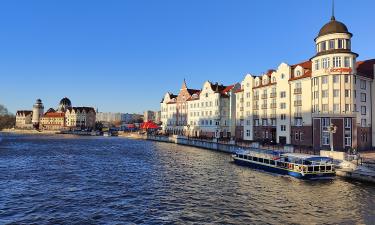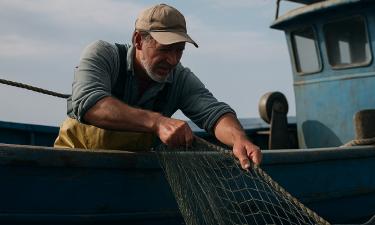Smugglers bring Cubans to Florida
A man signaled with a flashlight in the early July morning as his pregnant wife and 30 other Cubans crowded on the coast of Matanzas, Cuba. A speedy fishing boat came close to shore and two smugglers loaded the group aboard.

Then, like thousands of other Cubans who attempt the trip each year, they prayed the cramped vessel would make it across the roughly 150 miles (240 kilometers) to Key West.
The go-fast boat was 10 miles (16 kilometers) from Florida when they were met by a U.S. Coast Guard cutter. Cuban intelligence had tipped off U.S. officials about the boat's departure, according to court documents.
The Coast Guard pulled up against the boat and an officer shot out an engine. In the chaos, passenger Anai Machado Gonzalez, 24, smashed her head against the side of the boat. Blood seeped from her temple. She died before she reached U.S. soil.
The smugglers, Heinrich Castillo Diaz and Rolando Gonzalez Delgado, pleaded guilty in Machado's death and to smuggling. Amil Gonzalez Rodriguez, the man who flagged them down, was convicted on smuggling conspiracy charges but acquitted in Machado's death.
U.S. Magistrate Judge Michael Moore sentenced all three men to 12 years in prison, nearly twice the minimum under the sentencing guidelines.
Most of the other Cubans were allowed to come ashore.
Under a federal policy adopted in the mid-1990s, most Cubans who touch U.S. soil get to stay. And an increasing number of them - or their U.S. relatives - are willing to pay up to $10,000 (7,420 EUR) each for the dangerous and sometimes harrowing trip across the Florida Straits.
Interviews with U.S. Coast Guard officials and a review by The Associated Press of court documents show that from October 2002 through October 2006, the annual number of Cubans attempting the voyage to Florida or Puerto Rico more than doubled, reaching 7,027 last year. Typically, more than half make it.
Many in law enforcement attribute the spike not to the uncertainty over Fidel Castro's health but to well-organized and well-equipped smugglers.
They have turned human cargo into big business.
A go-fast boat costs about $150,000 (111,300 EUR) new, an investment easily recouped when a boatload of Cubans can gross $300,000 (222,600 EUR) or more. Also, the prison term they face if caught is much less than if they were arrested smuggling drugs of equal monetary value.
"Somehow, because it's human smuggling, some individuals would like to think that this is something different, perhaps more altruistic or humanitarian. But it's not," said U.S. Attorney R. Alexander Acosta, chief federal prosecutor in Miami. "The reality is that these human beings are being killed. They are being killed at the hands of smugglers who do this for profit, not for humanitarian reasons."
Stopping human smugglers is one of the fewareas in which Havana and Washington cooperate. And the perpetrators are getting more sophisticated, armed with GPS navigating systems and satellite phones.
In response, U.S. officials are stepping up prosecutions.
Last year, Acosta, a Cuban-American, began charging suspected smugglers with felonies; previously, misdemeanor charges were usually filed when no one was hurt. He is also bringing more charges against each smuggler, adding to the potential sentence. In addition, Acosta is the first U.S. attorney to use a new law making it a felony to refuse to stop a vessel or to prevent its boarding.
One major challenge for Acosta is that few Cubans who have been smuggled into the U.S. are willing to testify. But he hopes the threat of a long prison sentence will pressure low-rung boat crews to take the stand against the ringleaders.
The crackdown is motivated by more than just a desire to stop the flow of illegal immigrants.
"When we intercept a boat at night, it's dark. We don't know if it's 10 abuelas (grandmas) on board or 10 terrorists," said Zach Mann, a customs spokesman in Miami. The smugglers are "taking away resources that could be focused on terrorism."
Critics of U.S. policy toward Cuba question whether stiffer penalties can help reduce human smuggling when those who evade the Coast Guard are rewarded with green cards. Most illegal immigrants from nearly any other country are deported if caught.
Even Cubans who serve time in the U.S. for human smuggling are rarely sent back to the island for fear they might be tortured.
Amil Gonzalez's lawyer blamed the U.S. "wet-foot, dry-foot" policy toward Cubans for the rise in smuggling.
"Basically, if they don't touch land, it's like a high-seas football game," Israel Encinosa said. "Maybe if people were not allowed to come, there would be more pressure on the Cuban government."
But Acosta said the penalties can serve as a deterrent. He is pursuing more than 50 other smuggling cases. Suspected members of at least two large smuggling rings have been charged.
The number of Cubans trying to cross the water is down slightly in the fiscal year that started in October, with 3,181 known to have attempted the voyage so far. Yet the portion reaching land has risen to nearly 70 percent.
Officials attribute the overall drop in part to beefed-up Coast Guard patrols following Castro's illness and to a crackdown in Cuba. Acosta said it is too early to tell how much of a role the stepped-up prosecution has played.
Authorities blame the rise in landings on more sophisticated smuggling rings and the use of boats with greater capacity.
"They smugglers constantly adjust their tactics to us, as fast as we adjust to them," Coast Guard Lt. Cmdr. Chris O'Neil said.
Subscribe to Pravda.Ru Telegram channel, Facebook, RSS!



